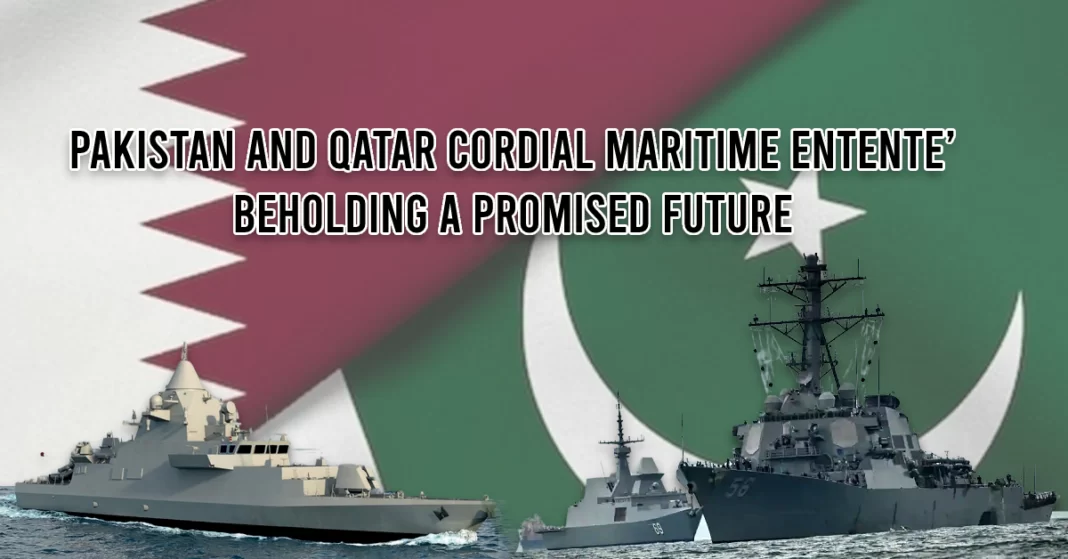Introduction
The foundation of the mutual relationship between the State of Qatar and the Islamic Republic of Pakistan is as strong as ox, as peaceful as pigeons, as deep as trenches, and as truthful as a knight of old.
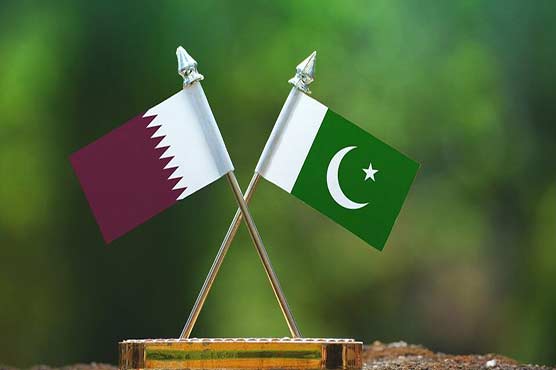
This partnership is multidimensional, encapsulating fields of politics, economy, trade, investments, culture, religion, education, armed forces, defense, and many others. This alliance began in the early 1970s and is thriving and progressing to date due to mutual trust, forbearance, sentiments of brotherhood, and Muslim Ummah.
Pakistan- Qatar Relations: A Cordial Entente
Pakistan and Qatar’s cordial relationships date back to 1971 when Qatar gained independence and Pakistan emerged as one of the initial countries to extend its hands of recognition and cooperation to the newly created Gulf country.
Since then, both countries have always regarded each other as “ironclad brothers” and a substantial part of the Muslim fraternity. Qatar has always rescued and lent its support to Pakistan in times of crisis including Earthquakes, Floods, Wars, Counter-Terrorism efforts, and Economic downtrodden.

On matters of regional and global affairs, both countries have always been on the same page. Pakistan places considerable importance on its relationship with Qatar which is based on strong foundations of common faith and culture.
The economic ties between the State of Qatar and Pakistan have recently witnessed a remarkable development, as bilateral trade exchange has reached USD 2 billion, and about 1400 joint companies are operating in various fields, as well as 7 companies completely owned by Pakistanis.
Qatar encourages the businessmen of both countries to contribute to the development of bilateral trade cooperation and seeks to bring the Qatari companies and their Pakistani counterparts closer to cooperate in the interest of both countries.

His Highness the Amir of Qatar, following his recent visit to Pakistan, directed to support the Pakistani economy with 3 billion dollars in the form of deposits and direct investments to underscore the strength of bilateral relations and express the confidence of the State of Qatar in the strength of the Islamic Republic of Pakistan’s economy.
Pakistani Businessmen and professionals are playing a major role in the banking, medical and construction sectors of Qatar. Recently an agreement has been reached to increase the Number of Pakistani blue-collar workers in Qatar to 100,000.

Despite the developed economic and political bilateral alliance, the governments of both countries are determined to promote bilateral relations on a broader front, introducing new avenues of cooperation, marked by Maritime Trade, Naval Defense, and Cooperation.
Bilateral Relations in Maritime Affairs
Owing to their brotherly ties and strategically pivotal locations, Pakistan and Qatar endure close and solidary relations expanding over decades, in the fields of Naval Defence and Maritime trade.

Pakistan and Qatar have engaged in several statutes, declarations, and Memorandums of Understanding (MoUs) in defense corporations. Both the parties have initiated and participated in joint and bilateral Naval exercises, training, deputations, provision of manpower, exchange visits, trading military equipment, and collaborations via Navy armed forces.
Many senior armed officers of Qatar Emiri Naval Forces (QENF) trained through joint training programs from the Pakistan Navy are currently serving in the armed forces including the Naval sector.
“Pakistan and Qatar enjoy closed friendly ties and cordial relations, and the exercise will contribute to further enhancing the bilateral ties between the two countries.”

Pakistan and Qatar have periodically hosted mutual visits of the highest level of armed Naval officers, the most recent being in March 2021, when Pakistan’s Chief of Naval Staff visited Qatar and met with the Chief of Staff Qatar Armed Forces (QAF) Lt General (Pilot) Ghanem bin Shaheen Al-Ghanem.
Both countries have participated in mutual drills, training programs, and expeditions, like in January 2019, Pakistan’s Navy convoy including PN KHAIBAR, PN RAHNAWARD, PN MADADGAR, and Maritime Security Ship, ZHOB visited Doha on a goodwill trip.
In February 2021, Qatar’s Naval delegation participated in Pakistan’s AMAN-21 Exercise along with 44 other countries, with the intent of showcasing Pakistan’s image as a peaceful, capable, and responsible naval power in the region.
In March 2021’s Joint Naval Drill in the Arabian Sea, conduction of Passage Exercise (PASSEX) between the Pakistan Navy fleet and Qatar Emiri Naval Forces Ships, visit of Pakistan Navy Ships (PNS) ALAMGIR and AZMAT to Port Hamad in Doha, Qatar during overseas deployment, and participation in bilateral exercise Asad Al Bahr-II with Qatar Emiri Naval Forces (QENF).
In March 2022, Pakistan’s flotilla constituted of PNS SHAMSHEER, PNS AZMAT, and also KOLACHI, Pakistan’s Maritime Security Agency Ship, visited Qatar to participate in Doha International Maritime Defence Exhibition (DIMDEX-22).
Pakistan and Qatar have also introduced several new avenues to bolster maritime trade and commerce between both states. A recent example of such an endeavor is the launch of a direct service between Pakistan and Qatar.
The new service, called PQX (Pakistan Qatar Express Service), will operate weekly between the Port of Karachi, Pakistan, and Hamad Port, Qatar with a competitive transit time of 4 days, making it the fastest direct connection between the two countries. The project has been innovated by a Qatar-based maritime transport and logistics cooperation called Milaha.
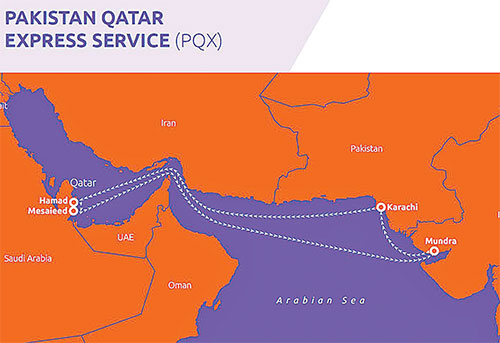
Future Prospects of a Win-Win Bilateral Maritime Partnership between Pakistan and Qatar
With the advent of non-traditional security threats in the regional and global paradigm, the future of regional maritime security shall depend upon sub-regional partnerships and alliances.
In this regard, Pakistan and Qatar can prove to be a refreshing and promising start to a new era of partnership between the Middle East and South Asia. In the maritime zone, the following are some of the major areas where both Pakistan and Qatar can reap the benefits of this cordial relationship.
Exploiting the Sea Trade Route
Qatar’s Doha Port and Pakistan’s Gwadar Port are geographically in proximity via the Strait of Hormuz in between. Currently, Pakistan and Qatar amount to $7 billion of mutual trade in the areas of Food Security, Textiles, Energy petroleum, gas, LNG, oil, Plastic, Chemicals, etc.
With CPEC thriving by each day and Gwadar transforming into a global hub for maritime trade and security, the bilateral trade between Pakistan and Qatar should be exploited via the sea route starting from Doha port, crossing the Persian Gulf, Strait of Hormuz, and ending at the Gwadar port.
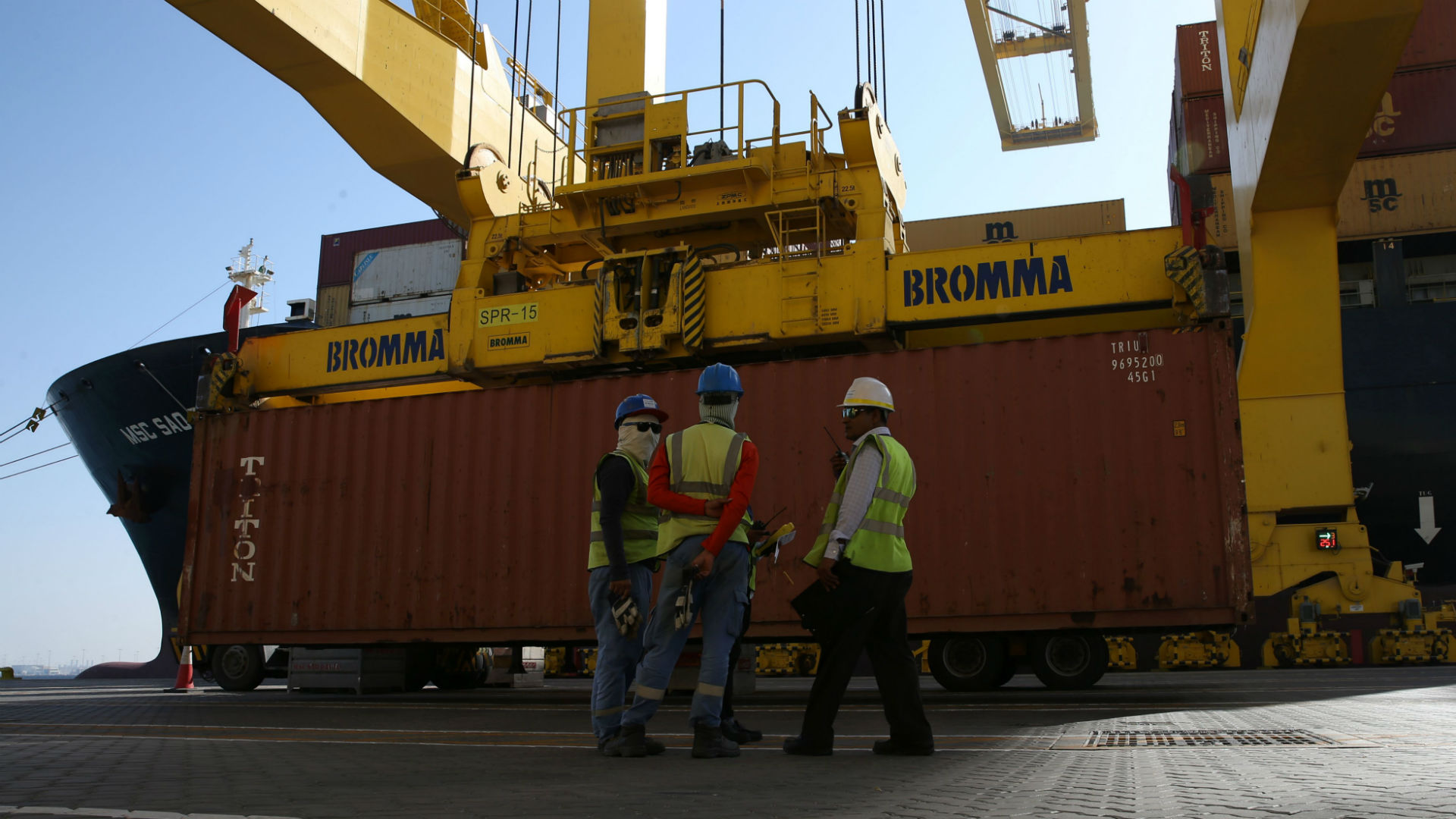
This shall provide a short, and brief trade route for both, Pakistani goods, and Qatari goods as it accounts for a mere distance of 3000 km, as compared to thousands of kilometers of land routes, consuming many excess folds of fuel, manpower, and money.
This will also increase sea traffic at Gwadar, increasing the prospects of effective port facilities, modernization of trading culture, proper training of port and vessel personnel, and addition of innovative technology.
Technology Transfer
Qatar has by and again proved itself in the field of innovative digital technology. Pakistan today faces the challenge of digitization of its management practices and implementing technological advancements in maritime affairs including improvement of port facilities, security, record-keeping, and tracking, and elevated facilities for ship personnel. This is another area where both, Pakistan and Qatar can cooperate and produce miraculous results.
Qatar can transfer its technology and services to Pakistan and grow and expand its IT sector and exports, whereas Pakistan can improve its digital infrastructure with the help of state-of-the-art tech facilities given by Qatar’s best IT experts.
Naval Defence
Pakistan and Qatar enjoy close defence Bilateral Relations nurtured over the years through naval collaborations and joint exercises. Based on their strategically pivotal location’s demand for a plait of certain security narratives, both countries have signed various MoUs in defence cooperation.
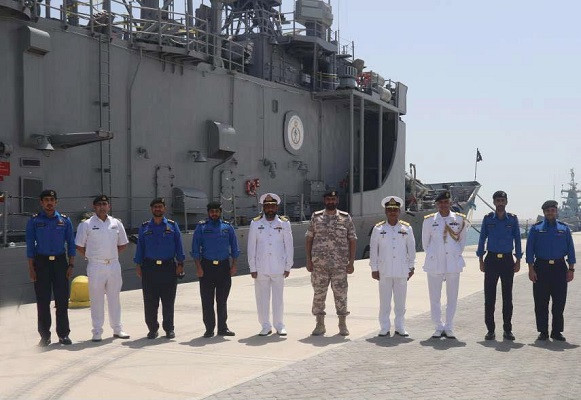
Having said that, both Pakistan and Qatar have the potential to collaborate in Naval defense and Maritime Security to enhance and overcome the security challenges, regionally and globally, through the exchange of intelligence, technology sharing, joint security forces, and vigilant patrolling in the Arabian sea.
Increase Fleet of Vessels
Pakistan’s fleet consists of a limited number of vessels and for most of the trade, we must rely on foreign vessels amounting to billions of dollars for our economy.
With Qatar’s collaboration and cooperation, Pakistan can produce technologically advanced, customized, and highly effective vessel ships.
This will thereby increase areas of cooperation between both the parties, indicating strong and consolidated bilateral tiers while simultaneously increasing Pakistan’s shipping fleet, enhancing trade, and multiplying job opportunities for the Navy cadets.
Conclusion
Hence, to conclude, Pakistan and Qatar have a tremendous plethora of historic brotherhood and cordial alliances which are based upon the pillars of Islam, Muslim Ummah, culture, traditions, reverence for religion, and affiliated aims and goals.
While many common grounds of benefits have been warily exploited certain areas of mutual interest remain, at large and in need of appreciation and acknowledgment.
The Maritime Trade, Naval Defence, and Cooperation are some of those less regarded and unattended realms of welfare that guarantee further strengthening and deepening of Pakistan and Qatar’s official engagement.
Both countries should utilize these avenues and engage in agreements, declarations, and bilateral initiatives not only to increase revenue generation but to jointly promote regional and global maritime security.
My name is Lyba Mobeen. I'm currently pursuing degree of BS-International Relations at Islamic University Islamabad.

